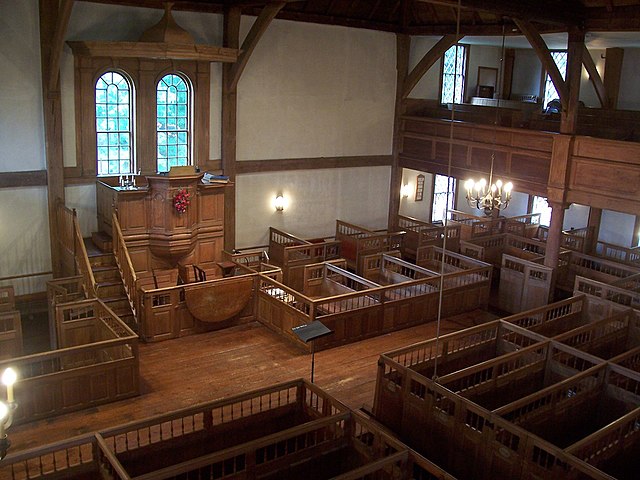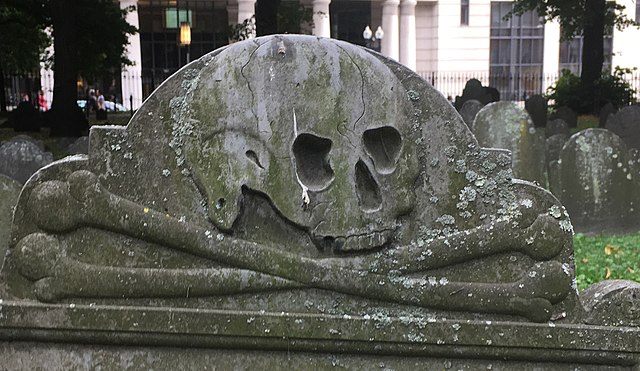William Ames was an English Puritan minister, philosopher, and controversialist. He spent much time in the Netherlands, and is noted for his involvement in the controversy between the Calvinists and the Arminians.
William Ames, theologian (1576–1633)
The Puritans were English Protestants in the 16th and 17th centuries who sought to rid the Church of England of what they considered to be Roman Catholic practices, maintaining that the Church of England had not been fully reformed and should become more Protestant. Puritanism played a significant role in English and early American history, especially during the Protectorate.
Gallery of famous 17th-century Puritan theologians: Thomas Gouge, William Bridge, Thomas Manton, John Flavel, Richard Sibbes, Stephen Charnock, William Bates, John Owen, John Howe and Richard Baxter
The Westminster Assembly, which saw disputes on Church polity in England (Victorian history painting by John Rogers Herbert).
Interior of the Old Ship Church, a Puritan meetinghouse in Hingham, Massachusetts. Puritans were Calvinists, so their churches were unadorned and plain.
Death's head, Granary Burying Ground. A typical example of early Funerary art in Puritan New England





